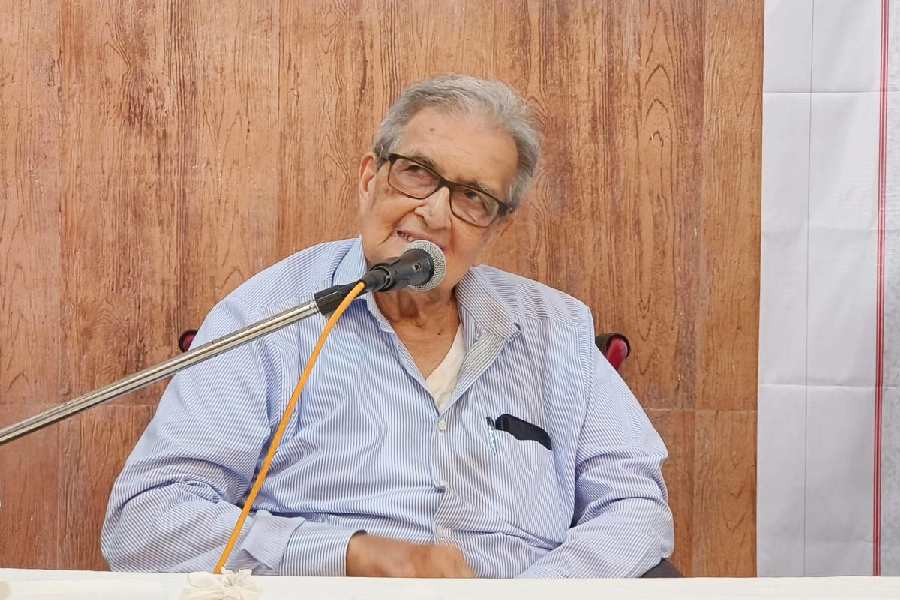Economist Amartya Sen on Saturday linked the growing unemployment in India to the government’s neglect of education and healthcare, the comment underlining his oft-repeated view that public spending on health and education must increase for improvement in human development.
“The education system was not at all developed significantly. The main reason behind India’s unemployment is the neglect in education and healthcare,” the Nobel laureate said in response to a question during a media interaction in Bolpur.
The latest data from the private research organisation, the Centre for Monitoring Indian Economy (CMIE), show that the unemployment rate in India rose from 7 per cent in May this year to 9.2 per cent in June.
Sen spoke to the media briefly after attending a daylong discussion in Bolpur on “Why we go to school: A lesson in cooperation”, organised by the Pratichi (India) Trust, during which he also delivered a 20-minute address.
In his speech, he dwelt on how some countries have been committing more resources to education and healthcare.
“The (Indian) government is now worried about the problem of unemployment. This is an admission that the problem persists. Why didn’t countries like Europe, Japan and China face this problem?” Sen said.
“Because they received education and focused on healthcare.... An educated and healthy person can put in more effort to make himself eligible for a job. The state of the existing education and healthcare system in India is indeed a cause for concern.”
Economist Jean Drèze, who has co-authored books with Sen, was present at the programme, attended also by teachers and students from several schools.
Addressing the gathering, Sen cited how Rabindranath Tagore had introduced the idea of inclusive education in Santiniketan, bringing in teachers from across the world and focusing on the well-rounded development of the students’ personalities.
“...Rabindranath Tagore did not go to school and studied alone, but he had a clear idea about how a school should be,” Sen said.
“When the school was started (in Santiniketan), many from my familywere attached to it. My mother Amita Sen was a student at that school.”
He went on: “A hundred years ago, it was a school where female students used to learn jujutsu (a Japanese martial art).... My mother learnt judo from an instructor who was from Japan. The Japanese instructor left the place but the tradition continued.”
While speaking on how the act of going to school can itself shape a child’s thinking in important ways, Sen turned the spotlight on the current political situation in India.
“When one goes to school, he or she meets a lot of people and friends coming from different sections of society,” he said.
“It appears, through dialogues, that the children do not make a distinction between Hindus and Muslims though there are discussions that India can be transformed into a Hindu nation.”
Sen went on to speak of how the Indian people had in the last general election thwarted — “partially”, he later clarified — the efforts to turn the country into a Hindu Rashtra.
He referred to the BJP’s failure to win the Faizabad seat, which includes Ayodhya, home to the newly consecrated Ram temple.
“In the last election, there was an effort to change India into a Hindu Rashtra. People of Indian origin could not accept it. Where the large temple was built,a secular candidate defeated someone who spoke for Hindu Rashtra,” Sen said.
Later, interacting with reporters, he clarified: “The move (to create a Hindu Rashtra) was thwarted partially. I can’t say that the effort was fully resisted.”
Sen, who has written extensively on India’s argumentative traditions, regretted that the recent implementation of the Bharatiya Nyay Sanhita, which replaces the Indian Penal Code, was not preceded by wide-ranging talks.
“There has not been any proof that wide-ranging talks had been convened with all the stakeholders before implementing it,” he said.











